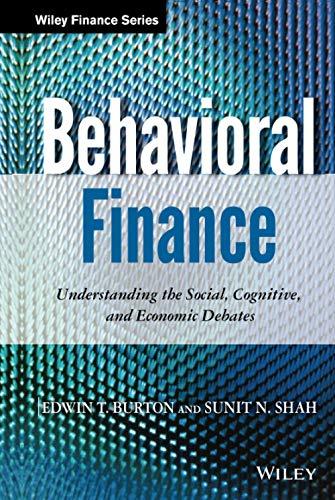Question
A Managers Dilemma: Putting It into Practice JPMorgan and Its Hiring Practices in China: Networking or Bribery? JPMorgan Chases Sons and Daughters hiring program, which
A Managers Dilemma: Putting It into Practice
JPMorgan and Its Hiring Practices in China: Networking or Bribery?
JPMorgan Chases Sons and Daughters hiring program, which involved hiring the children of Chinas ruling elite, is part of a U.S. federal bribery investigation that began in 2013. At issue is whether the bank improperly swapped job offers and consulting contracts for business with state-owned Chinese companies and thereby violated the Foreign Corrupt Practices Act. As discussed further in Chapter 24, that act makes it illegal for a company to exchange anything of value with a foreign government official to obtain an improper advantage in business dealings. Citibank, Credit Suisse, Goldman Sachs, and Morgan Stanley are also under investigation.
Internal documents obtained from JPMorgan during the investigation allegedly show that the Sons and Daughters program was initially designed to prevent questionable hiring practices. However, the program reportedly ended up being a gateway to business with large, state-owned companies in Chinas tightly regulated economy. One document, for example, recorded the banks track record for converting hires into business deals. Documents also showed that, although the people hired under the program were qualified, they were not subjected to the same level of scrutiny as other applicants. JPMorgan had not, as of early 2014, been accused of any legal wrongdoing. One media source noted that there was no indication that executives at JPMorgans New York headquarters were aware of the hiring practices and that the investigation could reveal that even though the banks program was aggressive, it did not cross a legal line.
U.S. attitudes toward programs like Sons and Daughters are generally negative, but attitudes in China are different. The criminal law of China prohibits businesses from paying bribes to government officials, but a payment of money is not considered a bribe unless the amount is significant. In addition, the practice of guanxi, which depends strongly on personal relationships, has a long tradition in China. Guanxi has been defined as an informal, particularist personal connection between two individuals who are bounded by an implicit psychological contract to follow [specific social norms,] such as maintaining a long-term relationship, mutual commitment, loyalty, and obligation, Accordingly, although a survey of 195 executives attending the Huazhong University of Science and Technology (HUST) revealed a consensus that it is unethical to give money or gifts to government officials or to provide paid travel, most of the HUST respondents considered hiring the offspring of government officials ethically acceptable.
What public policies are furthered by this law? To what extent are there conflicts among the policies served, and how will they affect the way the law in this area is interpreted, applied, and changed?
What effect does this body of law or legal tool have on the competitive environment and the firms resources? Where does this body of law or legal tool fit in the value chain?
Step by Step Solution
There are 3 Steps involved in it
Step: 1

Get Instant Access to Expert-Tailored Solutions
See step-by-step solutions with expert insights and AI powered tools for academic success
Step: 2

Step: 3

Ace Your Homework with AI
Get the answers you need in no time with our AI-driven, step-by-step assistance
Get Started


